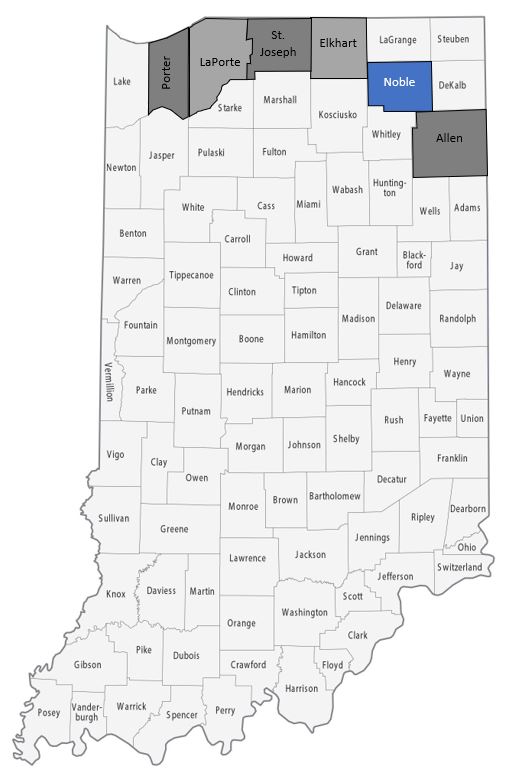1836-1839
(7 miles / 110 planned)
Authorized by the 1836 Internal Improvement Bill, only the Northport feed reservoir (Sylvan Lake) and a few miles nearby were constructed. Work stopped in 1839.
Counties of the Erie & Michigan Canal
Click on the county name to the left of the screen to explore the canal in that county

TOUR GUIDES
THE TUMBLE
HOOSIER PACKET
NEWSLETTER
INDIANA CANALS
INDIANA WATERWAYS
